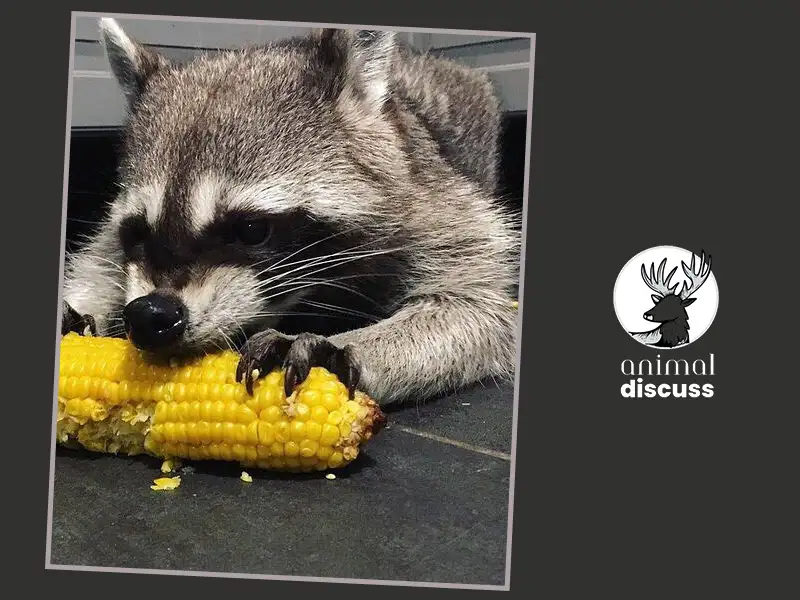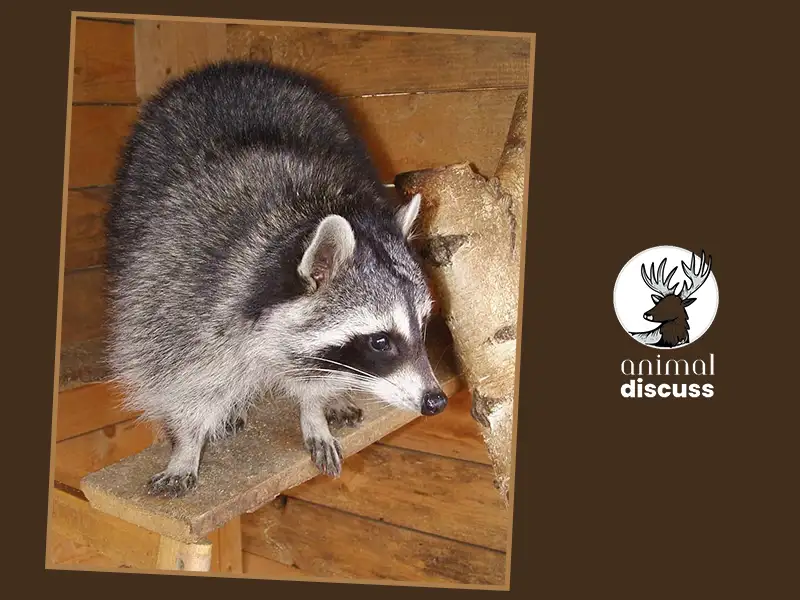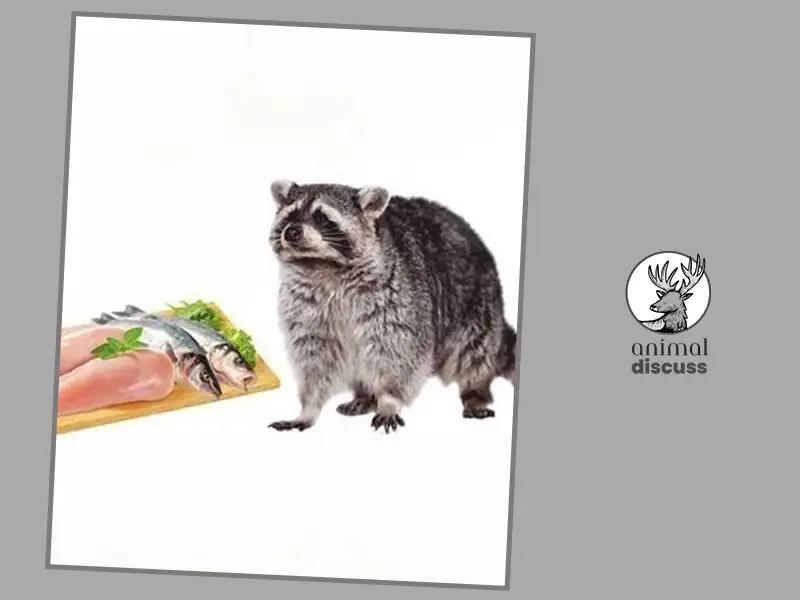Are you interested in knowing about the food habits of raccoons? Raccoons are omnivorous animals and they do not depend on a single food source. However, their eating habits may vary depending on numerous factors.
So, what do these little “masked bandits” eat? Foods of Raccoons include almost everything from berries to garbage. Raccoons like to eat nuts, fruits, and vegetables. They also like to eat insects, eggs, fish, and meat. Apart from these fresh and natural foods, raccoons may also eat carrion and human garbage.
In this article, I will discuss what foods raccoons like and don’t like to eat. I will also discuss the factors influencing raccoons’ eating habits and some harmful foods for raccoons.
Let’s delve into the eating habits of these masked bandits.
What Food Raccoons Like and Don’t Like to Eat
Raccoons can eat everything available. However, they have some favorite foods like sweets or high in fat. Also, there are few foods raccoons don’t like to eat.
Here is the list of food raccoons eat and do not eat.
| Raccoons Eat | Raccoons Don’t Eat |
|---|---|
| Fruits: apples, grapes, cherries, berries, etc. | Spicy foods: foods that have onion, garlic, and hot paper |
| Nuts: almonds, walnuts, cashews, chestnuts, etc. | Rotten foods |
| Insects: grasshopper, leafhopper, beetle, bees, caterpillars, etc. | Unripe foods |
| Small mammals: rats, mice, squirrels, etc. | Bitter foods: lemon, lime, and citrus foods |
| Fish: Koi, goldfish, crayfish, etc. | |
| Amphibians: Frogs | |
| Carrions |
In other words, apples, grapes, eggs, crayfish frogs, and pet food are some of the favorite foods of raccoons. Apples and grapes provide the required minerals and vitamins needed in raccoons’ diet. On the contrary, in crayfish, eggs provide the required protein for their development and survival.
Raccoons are not picky eaters but there are some foods they tend to avoid. They do not like to eat spicy foods and bitter foods such as lime, lemon, etc. Moreover, raccoons have a good sense of smell. So, they avoid rotten and unripe foods.
If you want to know more about raccoons, you must read from my blog.
Factor Influencing Food Habits of Raccoons
Raccoons’ food habits change based on some factors. The availability of food sources and the seasonal variations affect the eating habits of raccoons. Let’s have a look in detail.
Seasonal Variations
Raccoons eat those foods that are available in a particular season. Fruits and insects are abundant during the summer and spring seasons.

Therefore, Raccoons eat fruits such as apples, berries, cherries, and grapes during this season. They also eat insects such as grasshoppers, beetles, and crickets.
On the other hand, Raccoons become less dependent on fruits and insects during the fall and winter. Instead, they rely more on nuts and other stored food. Among their preferences are hickory, walnut, and acorn nuts.
When there aren’t many alternative food sources available in the winter, raccoons will also consume small mammals such as rats, mice, squirrels, and carrions.
Foods in Varied Locations
The food habits of Raccoons also depend on their habitat. So, Raccoons that live in the forest, prefer foods that are found near or in water bodies. They like to eat fish, crayfish, frogs, snails, clams, etc. Likewise, they also eat fruits, nuts, seeds, eggs, insects, and even carrions.
Consequently, Raccoons that live on islands have different food habits than those on the mainland. For example, the food raccoons on the Japanese island of Hokkaido include sea urchins, crabs, and seaweed which are not common foods of raccoons elsewhere.
Because of rapid urbanization and deforestation, raccoons venture into urban areas in search of food and become opportunistic. They will eat anything available near them including leftover food and pet food.
Raccoons even invade trash cans and eat garbage such as plants, fruit peels, and eggshells in urban areas. However, eating garbage does not make them sick. That is because they try to avoid the food that makes them sick.
Age
Age is another factor that influences the diet of Raccoons. Baby raccoon relies solely on its mother’s milk up to four weeks of age. Around the fifth week, the mother begins introducing solid food such as insects, fruits, and small animals to her baby.
The raccoon’s diet gradually changes from milk to a wider variety of solid foods. They are usually weaned and able to forage on their own by the eighth week.
What Foods Are Bad for Raccoons?
Like other omnivores, raccoons can become ill or even die by eating a wide range of foods. For example –

- Complex sugars found in sodas and artificial drinks cause hormonal and digestive system instability.
- Coffee, chocolate, and cocoa all include theobromine, which can cause seizures and could be fatal.
- The disulfides and sulfoxides in onions and other spices cause anemia.
- Persin, which causes diarrhea and heart congestion, is found in avocados.
- Processed sweeteners, candy, and chips can cause seizures and loss of balance. They may also result in liver failure and strokes, both of which can be fatal.
- Foods that contain mold can cause serious sickness. Neurotoxins found in fungus can induce raccoon attacks, vomiting, diarrhea, and fever.
Interesting Facts about Raccoons’ Eating Habits
Raccoons’ teeth are ideally shaped for what they eat. They have different kinds of teeth just like humans. Their sharp and strong teeth help them chew food. They tear and grasp food with their strong incisors.
Furthermore, Raccoons are nocturnal animals, so they venture during nighttime in search of food. However, a hungry raccoon may come out during the daytime as well.

Withal, raccoons mostly eat during the summer and spring seasons. In winter, raccoons have fewer food options. So, they mostly do not come out of their den during winter. However, raccoons emerge every few weeks to forage for food and drink water.
Another interesting habit of raccoons is that they wash their food before eating it. Although you might think that it is a hygienic practice, the real reason behind this habit is unknown.
Washing food before eating is an instinctive response of Raccoons. To improve their tactile awareness and learn more about the food they are carrying, they immerse it in water.
Frequently Asked Questions
Here are some additional questions you might be asking regarding the foods of raccoons.
1. Why don’t raccoons become ill after eating trash?
Firstly, raccoons mostly try to avoid rotten foods unless they have no other choice. They have long digestive tracts that allow raccoons to eliminate the majority of poisons found in the trash during digestion. Furthermore, the majority of pathogenic bacteria are killed by the extreme acidity of their stomachs.
2. Is pet food safe for raccoons?
Yes, pet foods for cats and dogs are completely safe for raccoons. Moreover, you can complement pet food by giving them fruits, insects, and eggs which will provide them necessary nutrients.
Conclusion
Raccoons are nocturnal, opportunistic animals. They can adapt to any environment and eat almost everything. Their diet varies depending on the season, and the availability of food in their habitat.
They eat several types of fruits such as apples, grapes, and berries. At the same time, they eat crayfish, fish, eggs, rats, carrions, snakes, and frogs. They even eat garbage from the trash bins. However, they have a strong digestive system which allows them to get rid of poisonous elements found in the trash.
Reference
- https://scholarworks.uark.edu/cgi/viewcontent.cgi?article=2092&context=jaas
- https://doi.org/10.5735/086.045.0409
- https://academic.oup.com/jmammal/article/77/2/440/837466
- https://www.iucnredlist.org/species/41686/45216638
- https://animals.mom.com/feeding-habits-raccoons-6800.html

